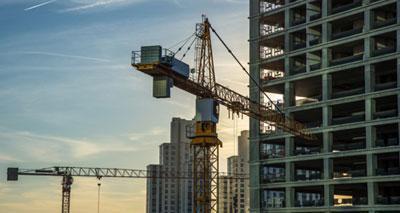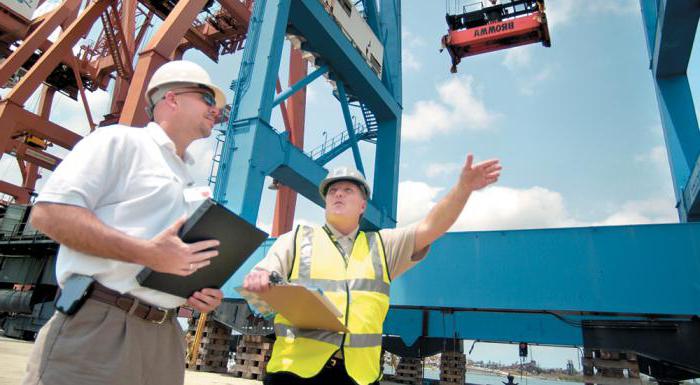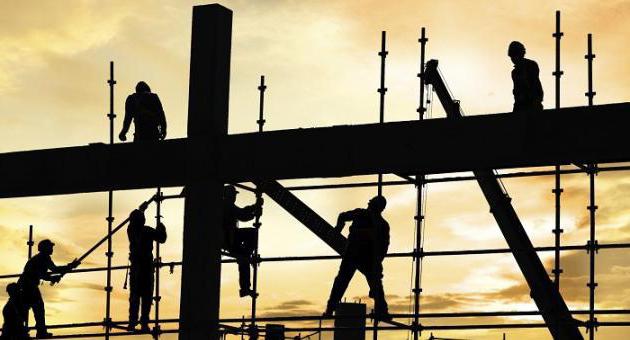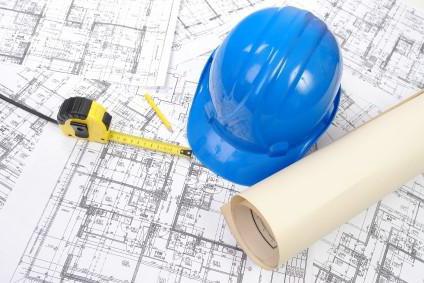The construction of any facility, whether it is an industrial structure or a residential building, is a very responsible process. This fact is due to the fact that the operation of any building has been going on for many years. Thus, even in the early stages of construction it is necessary to control the quality of work. Continuous technical and financial supervision throughout the work cycle allows you to verify the use of high quality materials, and also makes it possible to significantly reduce financial costs.

Basic concepts and definitions
A construction audit is an independent assessment of the activities of design and construction organizations engaged in construction, installation, repair drilling, design and other works. This process consists of a legal and technical audit of the construction site, in particular:
- verification of the quality management system, as well as used technical means and technologies;
- assessing the condition of equipment for construction and installation works;
- inspection of buildings, structures, structures and utilities;
- verification of design and technical documentation, the result of which is a conclusion regarding its compliance with the provisions of regulatory acts in the field of technosphere safety, as well as the validity of the applied technical means and technologies.
The objects of the audit are new industrial facilities prepared for commissioning, public and residential buildings, etc.
The construction auditor exercises control over the spending of the allocated financial resources, and also has the right to make changes, if necessary, to the design and estimate documentation.

When is an audit required?
A construction audit is necessary when changing the owner of the object (in this case, the valuation of the construction object is carried out) or the general contractor (assessing the cost of construction in progress), as well as in case of disputes between the investor, customer, contractor, etc. interested parties or when deciding on an investment funds in construction.
Most often, an audit of construction and installation works is required at the completion of one of the stages or the end of construction. Putting an object into operation is impossible without checking its design and technical documentation for compliance with national quality standards.

Regulatory framework for audit work
The basics of audit work in the Russian Federation are presented in the following regulations:
- Federal Laws “On Auditing”, “On Accounting”.
- Federal auditing standards.
- Decisions of the Government of the Russian Federation “On issues of state regulation of audit activity in the Russian Federation”, “On measures to ensure the conduct of a mandatory audit”, etc.
The goals and objectives of the audit
The purpose of the construction audit is to obtain reliable information about the actual condition and real value of the object.
The objectives of the audit in the field of construction are:
- confirmation of the reliability and safety of capital construction projects;
- protection of financial resources invested in the construction project from misuse.

Expertise or audit?
Quite often, the concept of building audit is mixed with construction and technical expertise.Consider the difference between the two processes. The latter includes inspection of buildings, technical assessment of construction (finishing) works, testing of building materials. Construction and technical expertise is usually carried out before putting the finished object into operation, while the construction audit covers all stages of construction - from the design of the object to commissioning.
State examination of the construction site
State examination is the legislatively established activity of authorized expert organizations and individuals, which is carried out on a state order on a contractual basis and consists in conducting research, studying and evaluating the object that is the subject of the examination, as well as in preparing and drawing conclusions and recommendations (expert opinions), concerning the investigated object.
State examination in construction is mandatory and is carried out for the following purposes:
- to prevent the construction of facilities whose construction and operation is contrary to state safety standards and sanitary and hygienic requirements;
- in the case when the construction and operation of objects infringes on the rights and interests of citizens, legal entities and the state protected by law;
- to verify compliance of the object with the doctrines of environmental and socio-economic state policy.
The subject of state expertise in the field of construction is the assessment of the conformity of the indicators presented in the design documentation with the regulatory requirements in the field of environmental protection and public health, protection of cultural heritage objects, as well as technosphere safety.
The result of the state examination is a document containing a technical opinion on the condition of the facility, which presents the data obtained during the audit and recommendations based on them, on the basis of which it is possible in the future to develop design solutions aimed at improving the quality of the facility.

Features of auditing in the construction industry
Audit in the construction industry is in many ways different from the audit of other types of activity, due to the characteristic features that significantly increase the requirements for an independent audit company. These include:
- the duration of the construction process;
- multi-stage work (construction, reconstruction, repair);
- multi-stage construction process (preparatory work, general construction work, completion of construction);
- seasonality of work;
- the possibility of including in the construction process long technological breaks with and without conservation of facilities.

Audit licensing
In modern conditions, licensing of audit activities in Russia is not required. In accordance with the new licensing mechanisms, instead of a building audit license, it is necessary to obtain a permit from SROs (self-regulatory organizations). The purpose of this procedure is to ensure that only professionals with an impeccable reputation act as auditors. These actions are aimed at improving the quality of construction projects, reducing financial and technological risks, as well as protecting the interests of the parties (the customer and the state).
To obtain admission of a self-regulatory organization, a relatively small package of documents is required that confirm compliance with the regulatory requirements established for the facility and a paid contribution to the compensation fund. After the audit organization is recognized as a member of the SRO, the applicant receives a certificate of admission, which confirms the organization's compliance with all necessary requirements.
Note that this type of licensing in the form of issuing permits for certain types of work can significantly reduce the number of bureaucratic procedures in the process of obtaining a license.